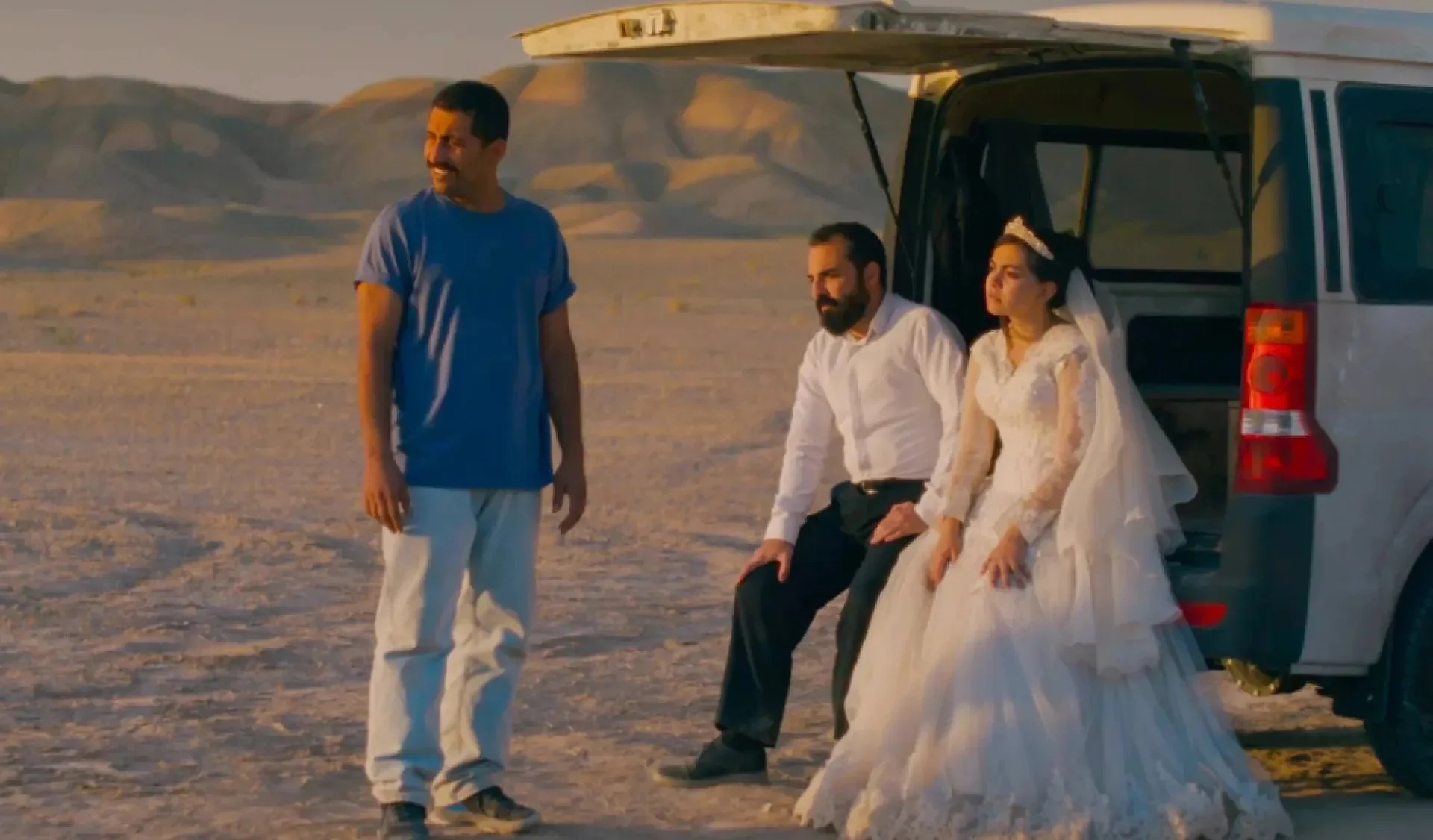It Was Just an Accident: Panahi’s Suffering Seeks No Answers
by Emma Batterman
Jafar Panahi is no stranger to auditory nightmares. In 2010, he was charged with fabricated crimes against the Iranian regime. Spending most of his time in solitary confinement, the only moments of reprieve from his small crypt were when he was dragged out for interrogations. The catch? He never saw the officers’ faces. After a week of no human contact, he would sit bound, blindfolded, and facing a wall, listening to his oppressors’ voices reverberate behind him.
Screened at the 61st Chicago International Film Festival, his latest film It Was Just an Accident directly references the elusive tones of his torturers. The film opens on a man (Ebrahim Azizi) as he drives with his wife and child down an inky black road in the dead of night. A loud thud and a whimper, the man pulls over and shuffles out the door, limping as he lugs a prosthetic leg attached to his hip. Off screen, the man discovers he’s run over a dog. His young daughter is visibly upset. “It was just an accident,” her parents tell her.
We meet our protagonist, Vahid (Vahid Mobasseri), in a garage after the family’s car breaks down. From his high vantage point, Vahid watches in horror as the man limps across the floor, his head obscured by the garage overhang. After stalking the man for several hours, Vahid drags him blindfolded and gagged to the Iranian desert, shoving him into a hollow grave. Vahid finally reveals his motives while frantically shoveling the brittle soil over the pleading figure: He’s captured his regime-appointed tormentor from his prior imprisonment, a former officer named Eghbal. Or at least he thinks he did. Suddenly racked with doubt, Vahid assembles three other political dissidents and victims of Eghbal in hopes one can make a positive identification.
Since his release in 2011, Panahi’s films have become increasingly self-referential. Like the filmmaker, Vahid and his cohorts have only experienced the torture of their keeper under a blindfold. They listened to the sound of Eghbal’s taunts while his prosthetic limb dragged across the ground in an uneven gait. Still unsure of the man’s validity, the party debates their desire for retribution and find themselves at a moral impasse. With long soliloquies on their personal suffering (that admittedly clouds the intentional obscurity developed in the beginning) they argue the integrity of implementing the same methods used by their torturers as a tool for burying their pain. In the spirit of Samuel Beckett’s Waiting for Godot (referenced directly in the film), skepticism freezes any hypothetical vengeance as the absurdity of their situation satirizes their attempts to make a single decision. Their ethical quagmire spiraling out of control, they slip further into a “heap of shit,” as one character candidly puts it.
Like the hit dog and obscuring overhang, Panahi consistently obstructs the viewer from the point of contention throughout the film. He plants the seed of doubt in the audience by actively blocking sources of integral information. Long takes and deliberate framing instead adhere us solely to the characters rather than any degree of action. This is particularly evident in the director’s treatment of the possible antagonist. Despite being the film’s catalyst, “Eghbal” remains in the trunk of the van, hidden from view throughout most of its runtime. As his identity is contested and his misery unearthed, his absence taunts the audience, actively barring the formation of any possible conclusion regarding the character’s suspicions. We are blindfolded, left to fantasize acts of violence and sources of pain from the perspective of a sound just outside our reach.
With dubiety permeating almost every facet of analysis, it’s clear this film isn’t seeking any solution to the characters’ question of revenge. When accepting the Palme d’Or at this year’s Cannes Film Festival, Panahi’s speech felt more like a prayer for his fellow prisoners than a celebration. “The most important thing at the moment is our country, and the freedom of our country.” Fresh from a 7-month prison sentence in 2023, the obscurity of any resolution clearly overwhelms the director in the larger lens of political repression. The weight of trying to make their own suffering at the hands of an autocracy mean something suffocates every choice these characters make. Less a statement on the ethical principles of reprisal than it is a powerful display of anguish, the film conveys ambiguity in the face of humanity’s need for certainty by channeling the burden of pain. Utterly compelling in its messaging, though at times a little on the nose, It Was Just an Accident exists as a potent testament to Jafar Panahi’s agonizing experience under an oppressive political regime.

